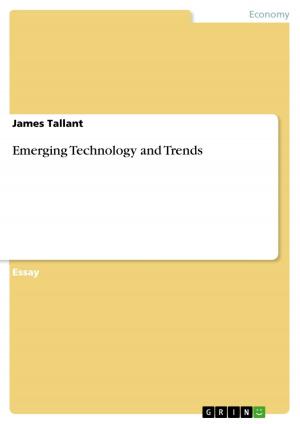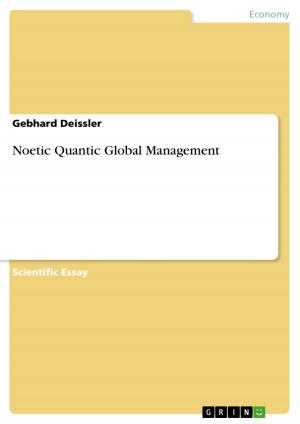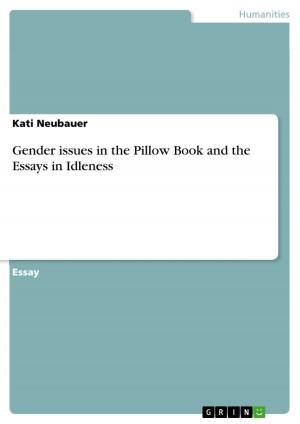Exile and 'Heimat': Tensions in Lion Feuchtwanger's Historical Fiction and Drama 1933-1951
Fiction & Literature, Literary Theory & Criticism, European, German| Author: | Anonymous | ISBN: | 9783640433919 |
| Publisher: | GRIN Publishing | Publication: | September 28, 2009 |
| Imprint: | GRIN Publishing | Language: | English |
| Author: | Anonymous |
| ISBN: | 9783640433919 |
| Publisher: | GRIN Publishing |
| Publication: | September 28, 2009 |
| Imprint: | GRIN Publishing |
| Language: | English |
Scientific Essay from the year 2009 in the subject German Studies - Modern German Literature, , language: English, abstract: The rise of National Socialism in Germany and the subsequent events of the mid-twentieth century transformed the literary landscape as well as that of the political. Feuchtwanger's work from 1933 onwards is noticeably characterised and coloured by his status as an Exile author: his somewhat strained relationship with both homeland and adopted country, the United States, comes to the forefront in his writing. There is a convincing argument to be made that that Feuchtwanger's development of the historical novel was essentially a didactic exercise, mastered against the backdrop of the rise of Nazism and the later political dynamics of the 1950s with the onset of the Cold War and the Red Scare in the United States. The author had as his purpose to convey the lessons of history and, by extension, to afford the reader the opportunity to apply these lessons to the political affairs of the present, all the while maintaining a steadfast belief that the reason would prevail over unreason - an unwavering faith in the eventual enlightenment of man.
Scientific Essay from the year 2009 in the subject German Studies - Modern German Literature, , language: English, abstract: The rise of National Socialism in Germany and the subsequent events of the mid-twentieth century transformed the literary landscape as well as that of the political. Feuchtwanger's work from 1933 onwards is noticeably characterised and coloured by his status as an Exile author: his somewhat strained relationship with both homeland and adopted country, the United States, comes to the forefront in his writing. There is a convincing argument to be made that that Feuchtwanger's development of the historical novel was essentially a didactic exercise, mastered against the backdrop of the rise of Nazism and the later political dynamics of the 1950s with the onset of the Cold War and the Red Scare in the United States. The author had as his purpose to convey the lessons of history and, by extension, to afford the reader the opportunity to apply these lessons to the political affairs of the present, all the while maintaining a steadfast belief that the reason would prevail over unreason - an unwavering faith in the eventual enlightenment of man.















